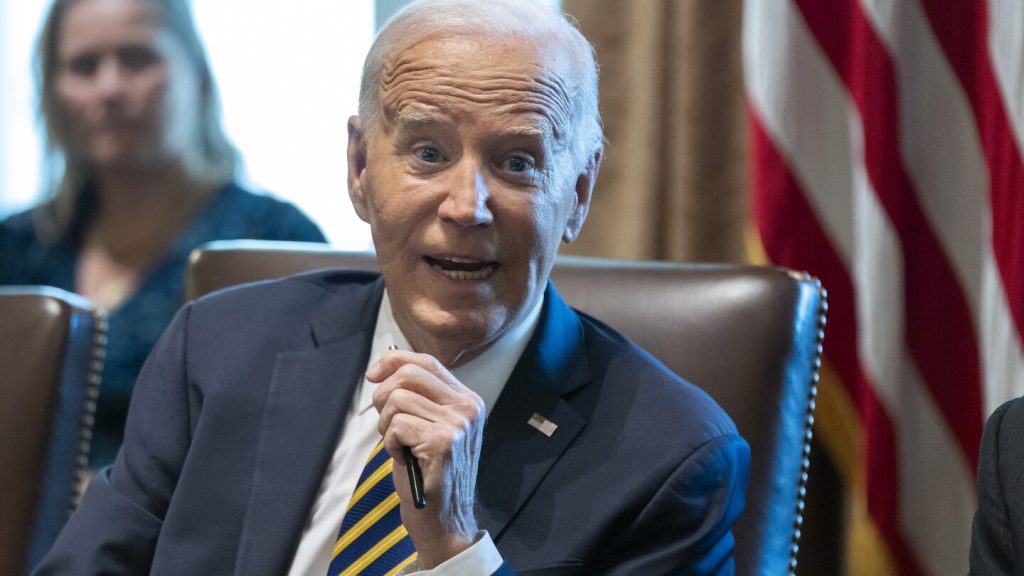The GOP-controlled House has passed a resolution to overturn a new Biden administration rule on automobile emissions that Republicans argue would force Americans to purchase unaffordable electric vehicles they do not want. The rule, issued by the Environmental Protection Agency, aims to implement ambitious standards to reduce planet-warming emissions from passenger vehicles. While the rule has been criticized as an electric vehicle mandate, it actually allows for flexibility by setting targets for the percentage of electric vehicle sales by 2032, along with requirements for plug-in hybrids and more fuel-efficient gasoline-powered cars.
The rule projects a significant increase in electric vehicle sales, with a target of 56% of new vehicle sales being electric by 2032. This would be a substantial rise from the current rate of 7.6% of new vehicles sold last year. Republicans claim that the rule is not about reducing air pollution but rather about forcing Americans to drive electric vehicles. They argue that this is part of the Biden administration’s push for green initiatives and could impact America’s energy future and auto industry negatively. However, Democrats view these criticisms as attacks on common-sense pollution protections and efforts to prioritize corporate interests over public health and safety.
Despite the GOP-led resolution passing in the House, Democrats have criticized the move as a distraction from crucial issues such as funding the government before a potential shutdown. They believe the resolution has no chance of becoming law, especially with President Biden likely to veto it. Democrats accuse Republicans of failing to govern effectively and prioritize policies that benefit the American people. The resolution passed with a vote of 215-191, with bipartisan support and opposition. Republicans argue that the EPA rule would harm the auto industry, middle-class citizens, and vulnerable populations by restricting consumer choice and imposing high costs for electric vehicles.
The EPA rule, applicable for model years 2027 to 2032, aims to reduce billions of tons of carbon emissions over the next three decades and provide significant economic benefits. The rule is technology-neutral and performance-based, allowing companies different pathways to comply. While President Biden has expressed commitment to fighting climate change and increasing zero-emission vehicle sales, critics argue that the rule could be detrimental to the auto industry and consumers. The EPA administrator emphasized the potential benefits of the rule, including lower health care costs, reduced emissions, and savings on fuel and maintenance. The administration remains focused on achieving climate goals and promoting sustainable transportation options for the future.


